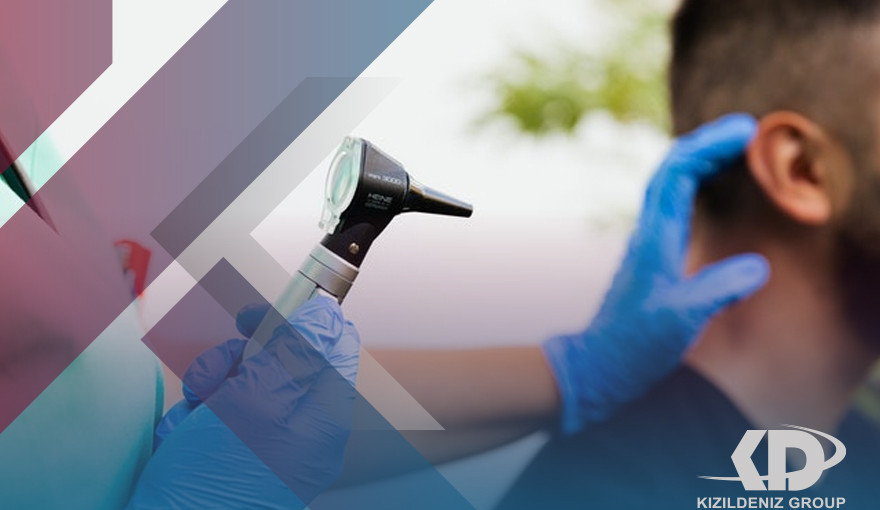What is the specialty of Audiology:
The Department of Hearing Science is an area concerned with assessing the hearing and equilibrium system and dealing with hearing and equilibrium imbalances. In the first year, we take basic lessons in anatomy, physiology and physics. And in the second quarter of the first year, we start to get into specialty classes, and in the later years, our specialized courses intensify even more.
Auditory science is modern medical science that teaches the human auditory system, its diseases, means of preventing auditory impairment and associated health problems, assessing the level of hearing impairment, determining hearing and equilibrium disorders through special diagnostic testing methods, as well as the rehabilitation of sufferers and the use of modern medical and technological means that help to treat hearing loss and balance disorders, in order to improve and enhance the ability to hear and communicate naturally in one's daily life.
History of Audiology Specialization:
The appearance of the use of the term "hearing science" or "hearing specialist" dates back only to 1946, and the first creator of the name is still unknown, but Berger has identified some names that are likely to have the name: Meyer, Hargreaves, Sherwillard, Stanley Nowak, Norman Canfield, or Raymond Carhart. In his autobiography, "Robert Galambos," he referred to Hallowell Davis as the first author of the name "Hearing Science," saying that this popular expression at the time, "Auditory Training," seemed like a way to teach people how to fluctuate their hearing. Northwestern University was the first university to present "Hearing Science" as a college scholar by Carhart.
The importance of studying the specialty of Audiology:
Hearing specialists perform diagnostic tests for hearing diseases and the balance device under the guidance of an expert physician and play a role in the preparation of rehabilitation and treatment programs for patients with hearing or balance problems. They also define and program devices that use hearing problems and organize programs and recommendations that help maintain hearing health.
Audiology courses:
- Information technology
- Functional autopsy of the nervous system
- Hearing, speech and digestive physiology
- Biochemistry
- Introduction in English Professional in Hearing Science
- Sign Language
- Medical biology and genetics
- Medical biochemistry
- Introduction to physiology
- Basic audio principles
- Language and its evolution
- Nose, ear and throat diseases
- Medical Applications Laboratory
- Diagnostic tests
- Hearing Simulation
- Gastrointestinal diseases
- Audio implants
- Audio rehabilitation
- Children's Hearing Science
- Equipment and materials for scanning
- Neuroscience
Fields of work for the Audiology major:
- Pharmacology
- Ear Buzz
- Methods of scientific research
- Applied Biometric Statistics
- Clinical Application Laboratory
- Graduation project
- Summer professional practice
- Hearing Application Research Centers
- Hearing clinics in public and private hospitals
- Special education and rehabilitation centers
- Schools and educational institutions to detect early hearing impairment among students
Best Universities for Audiology in Turkey:
- Istanbul Aydin University
- Istanbul Medipol University
- University of Baskent
- University of Uskudar
 FR
FR AR
AR
 Next one
Next one